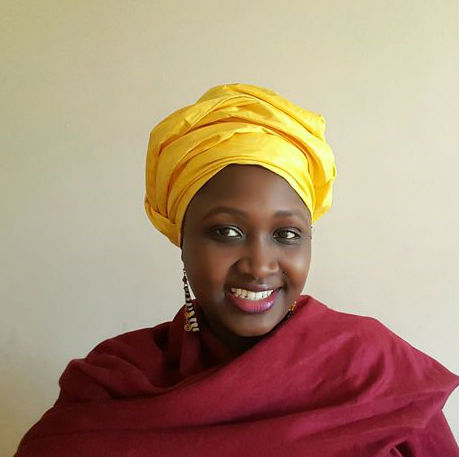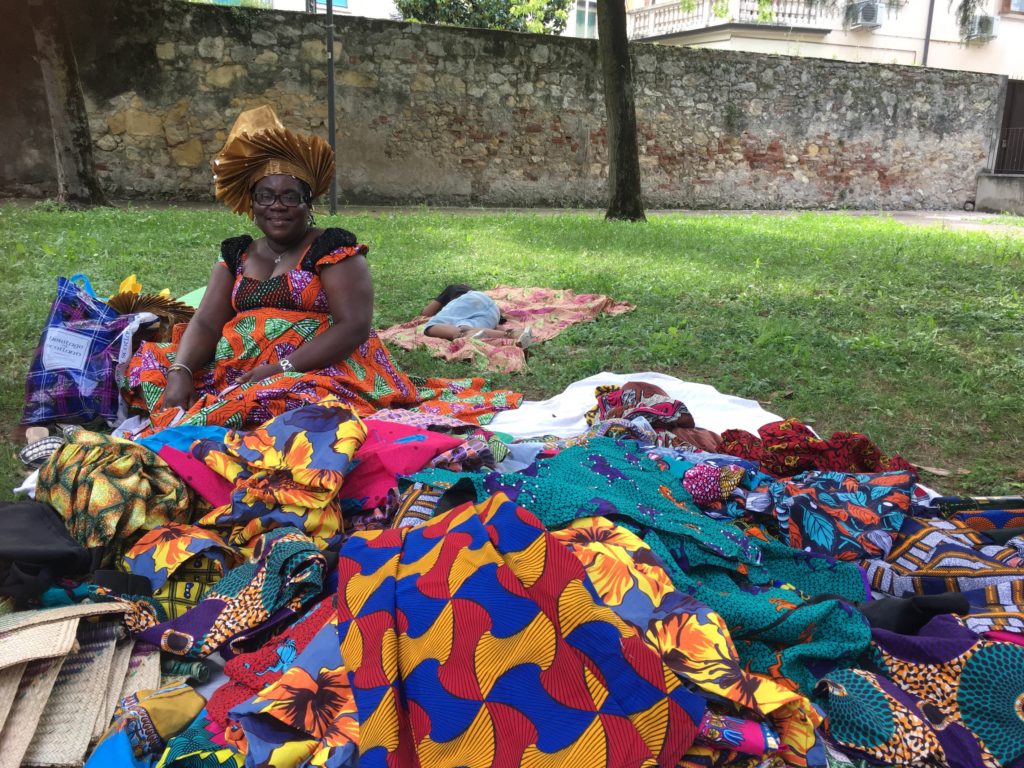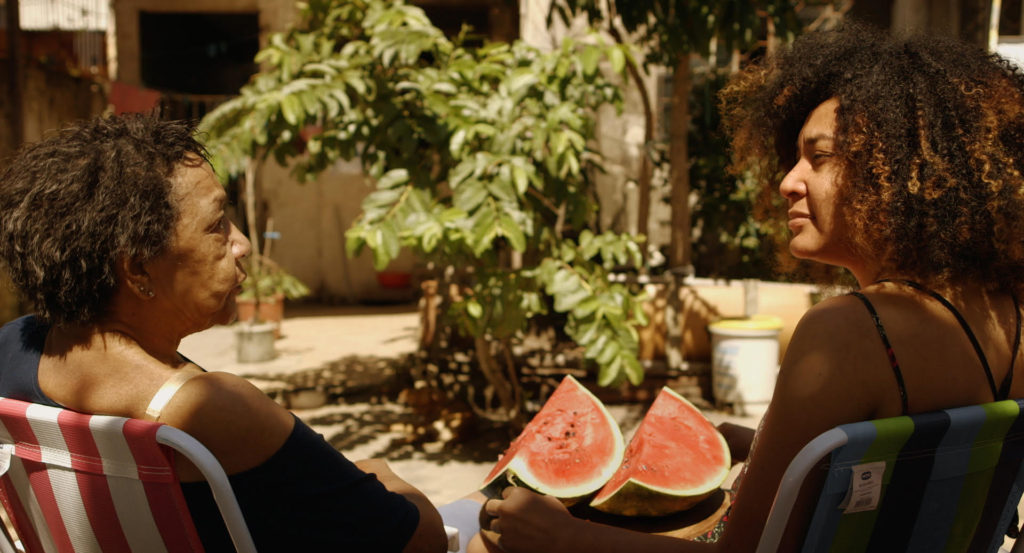On International Roma Day, we spotlight the Romnja Feminist Library—a groundbreaking initiative by young Romani queer feminists creating a digital archive of resistance, reclaiming narratives, and building transnational solidarity through feminist knowledge.
Written by Aldessa Georgiana Lincan and Alba Hernández Sánchez, co-founders of the Romnja Feminist Library
‘Our histories never unfold in isolation’ – Angela Davis
On International Roma Day, we Romani people are reminded that storytelling is resistance, and that archives play a crucial role in preserving our collective struggles. In this spirit, the Romnja Feminist Library emerges as a digital platform for knowledge production that centres on the past, present, and future of Roma Feminism.
Founded in 2023 by young Romani queer feminists and activists, the Romnja Feminist Library is a transnational initiative dedicated to documenting, archiving, and amplifying the voices and knowledge of Romani women across Europe.
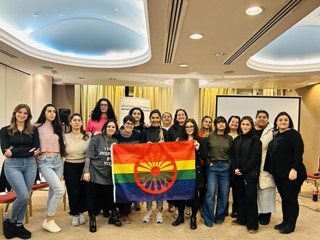
A history of resistance
Romani people are the largest ethnic minority in Europe, with an estimated 10 to 12 million living across the continent as both citizens and migrants. Despite our 700 years of history and contributions to the societies in which we live, Romani communities have faced persistent marginalisation and systemic discrimination.
Historically, we have been subjected to forced assimilation policies and slavery, particularly in regions like Romania, where we endured 500 years of enslavement. The genocide during the Holocaust, the forced sterilization of Romani women in central Eastern Europe, and ongoing social exclusion have further deepened our marginalisation. These oppressive measures have aimed to erase Romani culture and history, reinforcing harmful stereotypes and denying Romani individuals, especially women and queer Romani, access to knowledge and decision-making spaces.
For generations, Romani women have resisted erasure, reclaiming space through activism, literature, art and collective action. Their stories, our stories, are part of a wider struggle against systems of oppression that intersect across ethnicity, class, gender, sexuality, age, colour, religion, and language. By telling and amplifying these stories, we discover the deep connections between our past, present, and future.
For generations, Romani women have resisted erasure, reclaiming space through activism, literature, art and collective action.
In a world where Romani women and queer Romani have been historically erased from academia, policymaking, and media, we reclaim our stories and contributions.
Through our living archive, we decolonise knowledge production by making sure that Romani voices are not just heard but centred and recognised in knowledge spaces. Our platform is designed to bring Romani women together across borders, produce knowledge, and, at the same time, help diminish the isolation many of us face. This transnational approach is at the core of our initiative, allowing us to build solidarity and create spaces where Romani women can find connection, representation, and collective strength, both among ourselves and in solidarity with other racialized and queer communities.
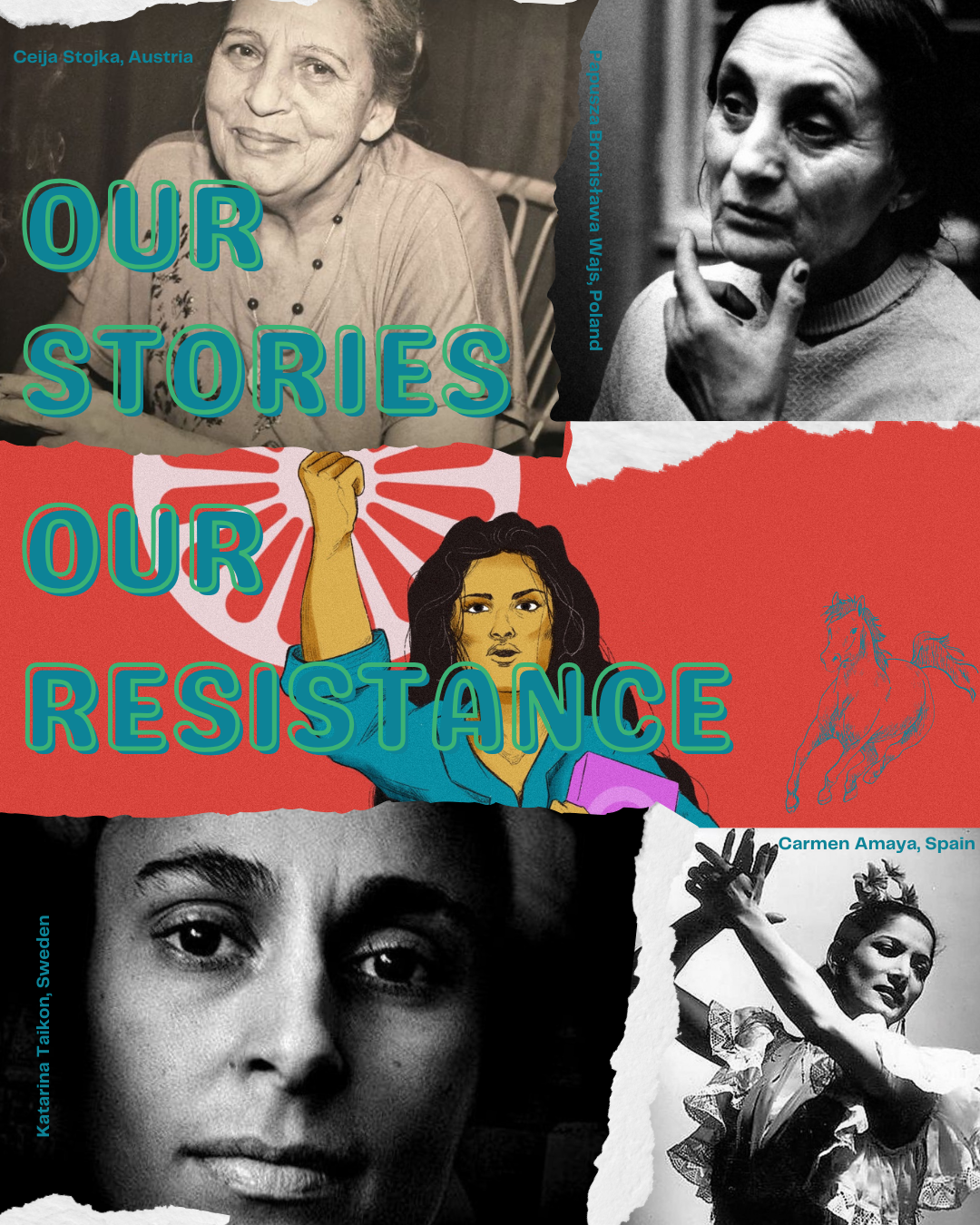
Why a library?
Libraries are the backbone of society; they are central to the creation and sharing of knowledge. By using the library as a concept, we centre our work on collective knowledge as a tool to challenge the colonial and patriarchal systems that have historically excluded Romani women from knowledge production spaces and reduced us to ‘social issues’. We use the library concept as a political action to reclaim Romani women’s knowledge. Through curated archives, collaborative events, and community-driven knowledge, we create spaces where Romani women, queer Romani, feminists, activists, and allies learn from the past to shape the future.
Envisioning the future
We envision a future where Romani women and queer Romani define their own stories rather than being spoken for and a future where young Romani girls find role models who reflect their identities and dreams. We believe in collective resistance, collective representation, and collective knowledge. Our goal is to build spaces of solidarity, learning, reflection, and resistance.
We aim to change the narratives from a community perspective on how Romani women and queer Romani are perceived, represented, and included in decision-making spaces—within academia, media, and policymaking.
We use the library concept as a political action to reclaim Romani women’s knowledge. Through curated archives, collaborative events, and community-driven knowledge, we create spaces where Romani women, queer Romani, feminists, activists, and allies learn from the past to shape the future
By centring and amplifying Romani women’s and queer Romani people’s lived experiences and knowledge, we seek to challenge and dismantle the epistemic violence of Eurocentric and patriarchal systems that have historically marginalized our voices and our contributions.
More than an archive – a transnational movement
The Romnja Feminist Library is more than just an archive—it is a growing, evolving space where knowledge is produced in collaboration with our communities. Since its launching in 2023, we have built a digital archive of Roma feminism and queer thought, curating over 200 materials in both written and video formats. We published the first issue, ‘Decolonising Gadje Narratives’ of Romnja Magazine, and connected Romani women, scholars, writers, and activists across 10 European countries.
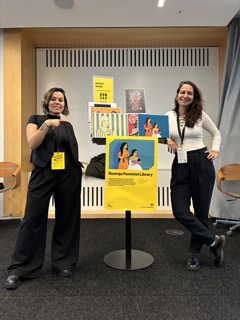
Through community-led events, mentorship, and knowledge-sharing, we amplify Romani women’s and queer Romani people’s voices and create spaces where lived experiences are centred and valued.
In our work, we apply a decolonial feminist framework rooted in intersectionality, anti-racism, anti-imperialism, anti-LGBTIQ+ oppression, and anti-patriarchy because real change happens when those most affected by injustice have the power to shape the conversations, policies, and decisions that impact them.
We refuse invisibility! We refuse silence!
We invite you to explore the Romnja Feminist Library and join us in reclaiming #OurStoriesOurResistance.
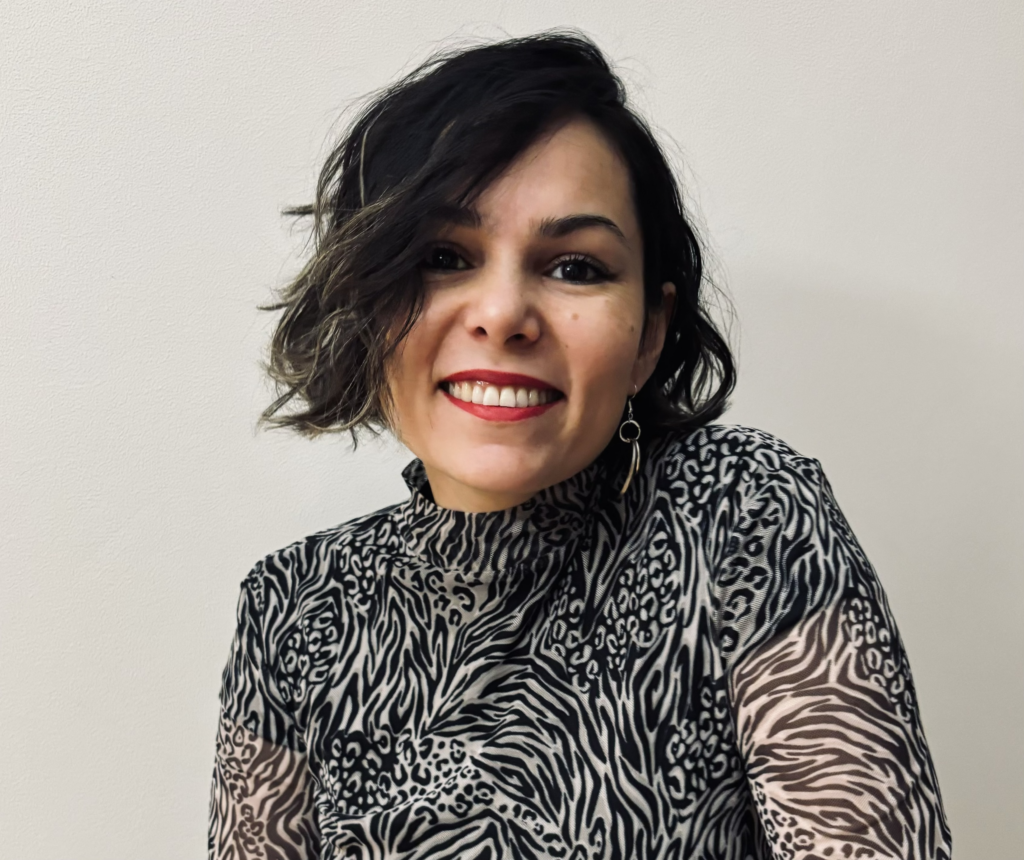
Aldessa Georgiana Lincan is a Roma intersectional decolonial feminist and the co-founder and director of the Romnja Feminist Library. She holds a master’s degree in Gender, Policies, and Minorities and has over a decade of experience in feminist grassroots activism, gender equality, intersectionality and Roma women and girls rights.
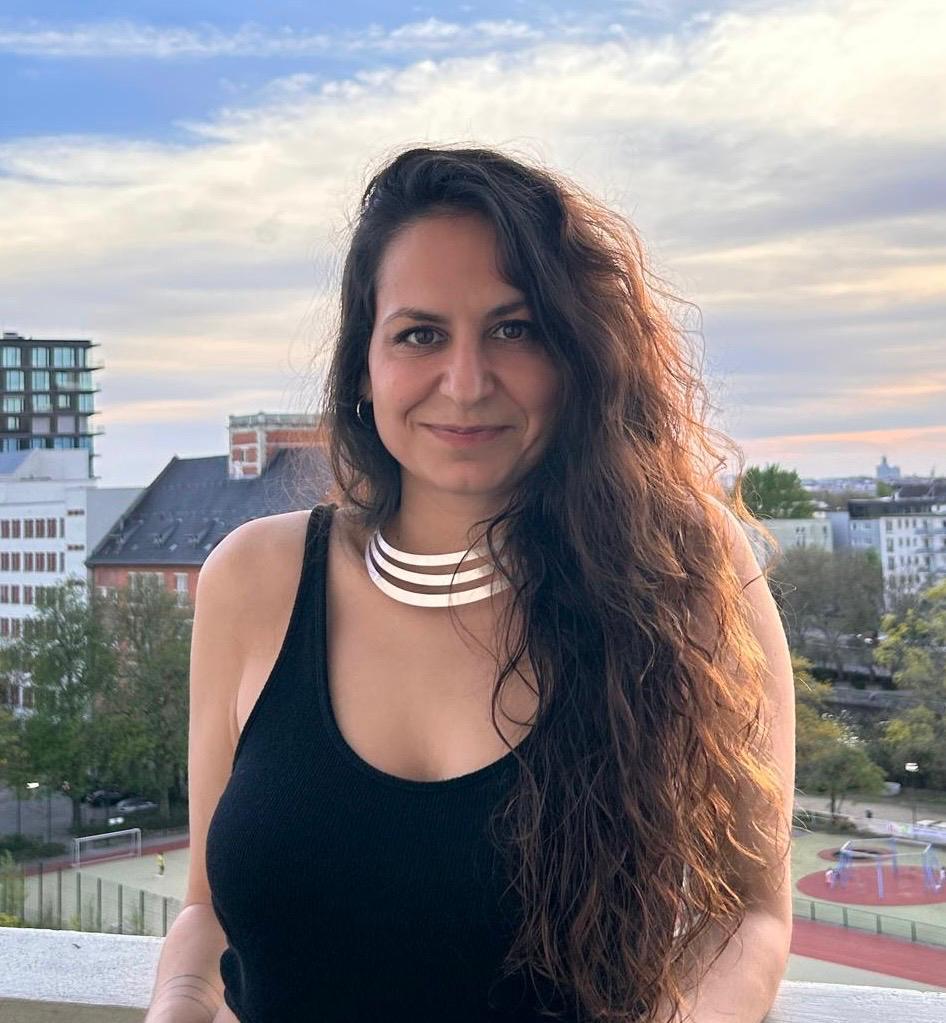
Alba Hernández Sánchez is a Romani feminist and gender studies expert. Her work centres on intersectionality, Romani feminist knowledge production, and anti-racist activism. She co-founded the Romnja Feminist Library and the Feminist Collective of Romani Gender Experts. Her activism bridges research, community-driven actions, and racial and social justice.

